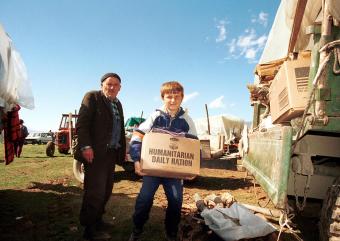Refugees & Resettlement
Recent Activity
Not long after the United States passed the 1980 Refugee Act, thousands of people began fleeing civil war in Guatemala, El Salvador, and Nicaragua. Their treatment in the United States, linked to U.S. foreign policy, spurred the Sanctuary Movement and efforts to grant them refugee status, as Susan Gzesh of the University of Chicago explains.
In the early 1990s, Ethiopians who had been living in refugee camps in Sudan began to return home. As Laura C. Hammond of Clark University explains, they created a new community in an unfamiliar part of Ethiopia that is thriving 12 years later.
In addition to post-September 11 security concerns, the U.S. is dealing with less predictable refugee flows. David Martin of the University of Virginia School of Law reports.
Over the past four years, the United States has resettled far fewer refugees than it did in the 1990s. The decline has stemmed partly from post-9/11 security measures. But this book explains other, deeper reasons, deriving from changes in how and why refugees move, how asylum states receive them, and the world community's response. It also suggests steps to restore the program and better address real refugee needs.
Asia’s tsunami will have an enduring impact on diaspora groups and immigration policy, write Frank Laczko and Elizabeth Collett of the IOM.






